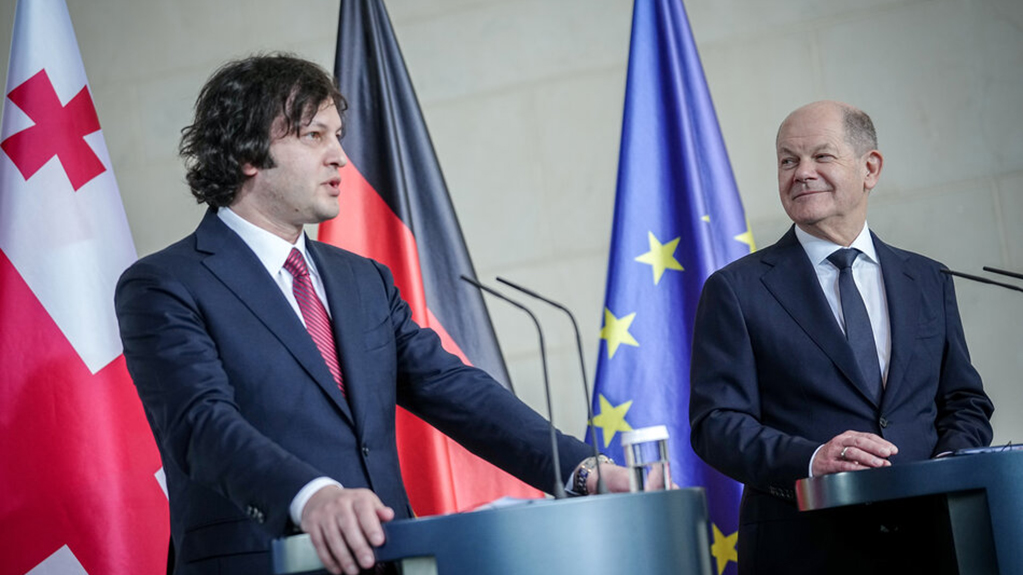"Olaf Scholz has his own problems," said Irakli Kobakhidze, the Prime Minister of Georgia, in response to the statement made by the leaders of the Weimar Triangle member states.
News
French President Emmanuel Macron, German Chancellor Olaf Scholz, and Polish Prime Minister Donald Tusk expressed concern over the current political situation in Georgia in a joint statement issued on November 7. According to them, they will not be able to support the opening of accession negotiations with Georgia until the country changes its current course and demonstrates tangible reform efforts, particularly by repealing recent legislation that contradicts European values and principles.
"First of all, it should be said that Olaf Scholz has his own problems, and I don’t know how he found time for Georgia. His coalition has collapsed, and extraordinary elections will soon be called. I think the German Chancellor should be more concerned about his own problems and not make statements about Georgian issues," said Kobakhidze.
When asked whether the Russian law On Agents, which the ruling party refers to as the Transparency Law, will be revised, the Prime Minister stated that the field of non-governmental organizations cannot be "the only island of opacity and ambiguity" in the country.
"It’s just incomprehensible. If someone can prove to us that NGOs should remain the only obscure entities in our country, then we can discuss this issue," said Kobakhidze.
Regarding the Law on Family Values and Protection of Minors, which the Venice Commission also considered incompatible with European and international standards, the Prime Minister of Georgia described it as a "healthy law." According to Irakli Kobakhidze, "it is not possible for European leaders to urge us to believe that a woman is not a woman and a man is not a man."
In the European Commission’s annual report on EU enlargement, published on October 30, the adoption of these laws by Georgian Dream was negatively evaluated.















